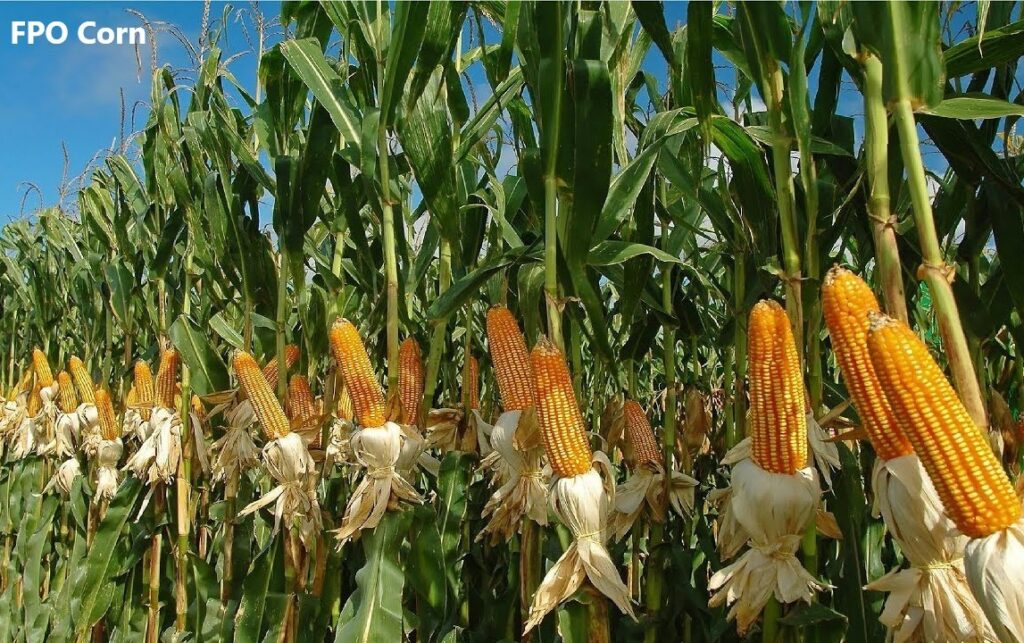Introduction
How FPO Corn Helps Reduce Costs
FPO Corn helps smallholder farmers lower their costs by promoting collective farming practices. Through Farmer Producer Organizations (FPOs), farmers can share resources, leading to significant savings. Key ways FPO Corn reduces costs include:
Bulk Purchasing
Farmers can buy seeds, fertilizers, and other essential inputs in large quantities, which allows them to take advantage of bulk discounts and lower overall input costs. This reduces the financial burden on individual farmers, making essential farming supplies more affordable and accessible.
Shared Machinery
FPOs enable farmers to share expensive machinery like tractors, plows, and harvesters, eliminating the need for individual investment in these high-cost tools. This not only reduces the financial strain but also allows farmers to use modern equipment they might not otherwise afford, improving efficiency and productivity.
Joint Storage Facilities
By pooling their produce, farmers can negotiate better prices with buyers, minimizing transport and distribution costs. This collective bargaining power enables farmers to secure more favorable contracts, leading to higher income and reduced financial risk.
Challenges of FPO Corn Farming
While FPO Corn farming offers significant benefits, it also faces several challenges:
Market Volatility
Although FPOs help farmers secure better prices, they are still vulnerable to fluctuations in market demand and prices. External factors like climate change, policy shifts, or global commodity price changes can impact profitability.
Lack of Infrastructure
Some regions still lack essential infrastructure, such as storage facilities, roads, and reliable transportation. Without these, even collective efforts can face significant hurdles in getting the corn to market efficiently.
Limited Knowledge and Training
Many smallholder farmers may not have access to the latest farming techniques or technology. Continuous education and access to agricultural training programs are necessary to keep up with modern farming practices.
Organizational Hurdles
Forming and managing an FPO can be difficult, especially for smallholder farmers who may lack experience in cooperative structures. Effective leadership and coordination are crucial for success, and any inefficiencies can undermine the group’s potential.
The Future of FPO Corn in the USA
The future of FPO Corn in the USA looks promising, with significant potential to transform smallholder farming and boost agricultural sustainability. Here are key factors shaping its future:
Increased Demand for Local and Sustainable Corn
As consumers and industries demand more sustainably sourced products, FPO Corn provides a viable solution. With the growing emphasis on local farming and organic production, FPOs can meet these needs by offering high-quality corn produced through responsible practices.
Government Support and Policy Change
Governments are increasingly recognizing the value of Farmer Producer Organizations (FPOs) as a way to support smallholder farmers. Policies that promote cooperative farming, provide financial incentives, and improve access to resources like training and technology are expected to help FPOs grow and thrive.
Collaboration with Agribusinesses
Partnerships between FPOs and larger agribusinesses will play a key role in the future of FPO Corn. Agribusinesses can provide access to markets, technology, and expertise that smallholder farmers might not otherwise have access to.
Environmental Sustainability
FPOs can also contribute to the future of FPO Corn by focusing on sustainable practices like crop rotation, reduced pesticide use, and soil health. These efforts will not only improve long-term corn production but also support environmental conservation.
Social Impact of FPO Corn Farming
Beyond its economic and environmental benefits, FPO corn farming also has a profound social impact on rural communities. By forming FPOs, farmers gain a sense of collective responsibility and camaraderie, which fosters social cohesion and mutual support. These organizations often facilitate the sharing of knowledge and expertise, empowering farmers to overcome common challenges and improve their livelihoods.
The Role of FPOs in Enhancing Corn Production
Farmer Producer Organizations (FPOs) play a crucial role in enhancing corn production by enabling smallholder farmers to collaborate, access better resources, and increase their overall efficiency. Here are key ways FPOs contribute to improving corn production:
Shared Technology and Equipment
FPOs provide access to modern agricultural machinery and tools like tractors, plows, and harvesters, which are often too costly for individual farmers. By sharing these resources, farmers can enhance their productivity and adopt more efficient farming methods, ultimately improving corn yields.
Training and Knowledge Sharing
FPOs facilitate continuous training and knowledge-sharing among farmers. They offer opportunities for farmers to learn about the latest farming techniques, pest management, irrigation methods, and soil health practices. This education helps farmers improve their crop management skills, leading to higher yields and better-quality corn.
Improved Post-Harvest Handling
FPOs often provide access to storage and processing facilities, which help reduce post-harvest losses. By properly storing corn and processing it efficiently, farmers can ensure their produce retains its quality, leading to better prices in the market.
Risk Mitigation
By working together, FPO members can share risks associated with crop failure, market fluctuations, or natural disasters. This collective risk-sharing reduces the financial burden on individual farmers, making it easier to recover from setbacks and continue corn production.
FPO Corn and Food Security
FPO corn farming plays a crucial role in strengthening food security, particularly in regions where access to food is a constant challenge. Corn is a primary source of nutrition for many populations around the world, serving as a staple in diets across Africa, Asia, and the Americas. By focusing on corn production, FPOs ensure that communities have a steady and affordable supply of this vital crop.
Conclusion
Farmer Producer Organizations (FPOs) have a transformative role in enhancing corn production, especially for smallholder farmers. Through collective efforts, FPOs enable farmers to access quality inputs, modern technology, and shared resources, significantly reducing costs and increasing productivity. They foster a collaborative environment where knowledge sharing, training, and the adoption of sustainable practices lead to higher yields and better-quality crops.


